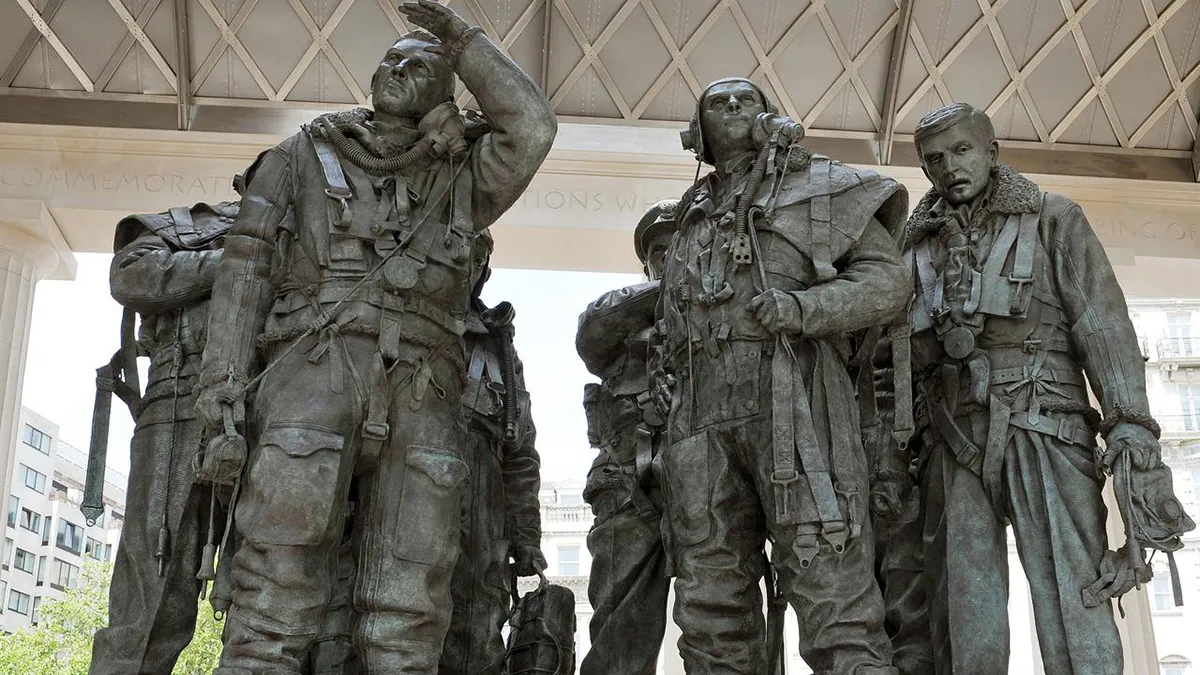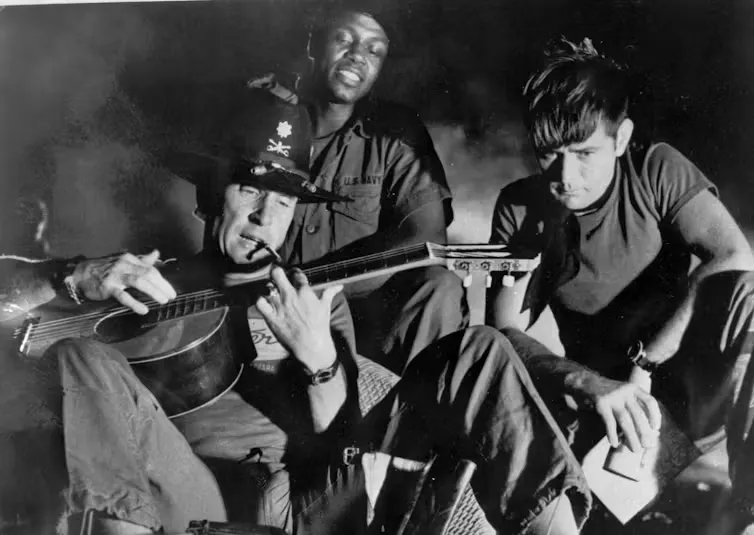Table of Contents
As George Orwell wrote in 1943, in response to “progressive” hand-wringing over the bombing of German cities, “all talk of ‘limiting’ or ‘humanizing’ war is sheer humbug”.
The opponents of the bombing, Orwell noted, still wanted the war to be won — they were not so foolish, at least, as to imagine that anything less than the complete eradication of the Hitler regime should be countenanced — but they somehow imagined that it could be won by… well, how they never really made clear. Apparently, these strategic geniuses imagined that the Nazi war machine began and ended at the front line and that cities and people of an entire nation who were turned over to the sole purpose of making war had nothing to do with it
But it wasn’t just pearl-clutching “progressives”: even the British government treated Bomber Command as an unmentionable embarrassment.
Bomber Command was ostracised at the end of World War II: the supreme sacrifices of 55,000 aircrew airbrushed from the memory of prime minister Winston Churchill who failed to acknowledge their bravery in his end-of-war 1945 speech.
Even Toowoomba’s Don Bennett, the air vice marshal who led the Pathfinder Force was snubbed for a knighthood unlike other squadron leaders.
There was no memorial erected to the Bombers even though the death rate of 44.4 per cent in Bomber Command exceeded the horrific deaths of those in the trenches during the Great War. There was no medal struck.
The reason was that Whitehall was spooked by the very hand-wringing that Orwell railed against. Presaging the (false) argument that would first make Holocaust-denier David Irving’s name decades later, the armchair experts in Bloomsbury and Mayfair clutched their pearls over the bombing of Dresden — apparently forgetting the Coventry firestorm and the Blitz.
The popular lie, then and now, was that Dresden wasn’t a “legitimate military target” — which conveniently ignores that it was not just a major rail nexus, but home to more than one hundred factories, including the critical Zeiss optical plant.
No-nonsense Bennett wouldn’t stand for such criticism from the top brass. In a letter to his men when war in Europe was declared over, he wrote: “Bomber Command’s share in this great effort has been a major one. You, each one of you, have made that possible. The Pathfinder Force has shouldered a grave responsibility. It has led Bomber Command, the greatest striking force ever known. That we have been successful can be seen in the far-reaching results which the Bomber offensive has achieved. That is the greatest reward the Path Finder Force ever hopes to receive, for those results have benefited all law-abiding peoples.”
And that’s the key takeaway: the Allies could play nicely — and the Nazi regime either survive or take many years longer to defeat — or they could crush Hitler’s war machine swiftly, albeit brutally. The same argument applies to those who wring their hands over the atomic bombing of Japan: just how many more months and years would the pearl-clutchers have preferred those Asian peoples occupied with such horrific savagery to have remained under the heel of Imperial Japan?
The survivors of Nanking would no doubt have a somewhat clearer view.
As did those who risked their lives with such horrific attrition to bring Nazi Germany to heel.
Ninety-nine year old Dick Raymond from North Wales was a Path Finder in the 83rd squadron, and had bombed cities like Berlin and Nurembourg. He was in a German prisoner of war camp when the Dresden raid took place.
“After the war I became member of an aircrew association and they had bombed Dresden at the end of the war and I said at one of our meetings, ‘they should never have bombed Dresden, a beautiful old city on the edge of the Rhine, with real history, and the war is about to end’, and they said to me, ‘how did you know the war was about to end?’
“Of course they were quite right.”
For once, though, pop stars were instrumental in having the monumental sacrifice of Bomber Command crews recognised, even if decades late.
In 2012, 67 years after the end of the war, Queen Elizabeth II opened a $10m 2.7m tall bronze memorial to Bomber Command in Green Park. Brisbane’s pop star Robin Gibb, of the Bee Gees, and Jim Dooley of The Dooleys had spearheaded a five-year, multimillion-dollar fundraising campaign to honour the courage of the bomber crews.
Mr Gibb sadly died of cancer just before the royal opening, but he had the chance to see the carving of the statue, which shows a crew returning from a bombing mission.
“This is honestly the proudest thing I’ve ever done,” Mr Gibb said back then. “It was so important to finally see that the brave airmen who risked their lives every night to fly bombing raids over Germany and shorten the war were finally honoured, and now it is happening. This memorial is bigger than even the Wellington Memorial and will still be here long after we are gone. It will last forever.”
After all, as former flier Dick Raymond reminds himself, in the final analysis, it was Nazi Germany which dedicated itself with murderous zeal to its “Final Solution”.
“Trainloads of men, women and children taken into a gas chamber, train load after train load. A man called Hitler that shouted he wanted to eradicate a whole race: oh God.’’
The Australian
A nation which erects Auschwitz, Treblinka, Dachau, and Buchenwald, simply has no right to try and play the victim.









